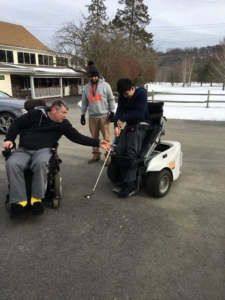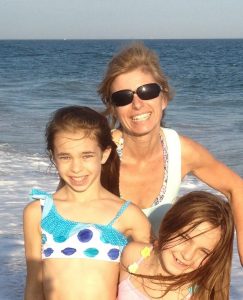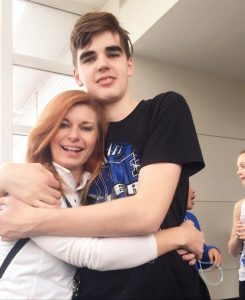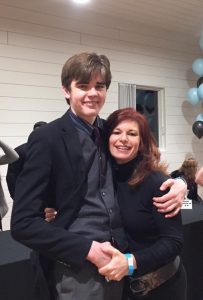Twenty-three years ago, my first-born child, Connor, died from Sudden Infant Death Syndrome. He was born in April and I’ll always remember how incredibly significant that first Mother’s Day was for me. Little did I know at the time that the next Mother’s Day I would be hiding in my house with a torrent of emotions overwhelming me. Connor died August of that same year at 3 mos. and 24 days old.
Needless to say, the most powerful emotion was raw, agonizing grief. It’s impossible to describe the physical pain you feel when your baby has died. And on Mother’s Day, when other moms are celebrating, you realize how incredibly alone you really are. You can’t talk to your other mom friends because both you and they feel so awkward, unsure of what to say. As a friend how do you celebrate the day while someone else has lost her reason for being? And as the person who is grieving, how do you rise above your sadness to smile and wish your friend a happy Mother’s Day? No, for everyone involved, it’s much easier to hide in your home and wait for the day to be over.
And then, to be honest, there’s the anger and resentment. Why would God allow this to happen to you?! I’ll admit to many times thinking of abusive and negligent parents whose babies were still alive. Yet for me, who did everything right, my baby is dead. It takes many years for this anger to abate. One day I finally realized that no one is immune to tragedy and that everyone has their own story. The answer to the question “Why me?” is “Why not me?” Who am I to never experience sorrow or tragedy?
I went on to have three more amazing children who now are 22, 18 ad 15 year’s old. Each of them in their own way has helped me heal. The pain has softened but there will always be a sense of sadness and longing for what might have been. I channeled my grief into activism and am now the CEO of First Candle, the non-profit that provides bereavement support to families who have lost a baby to Sudden Unexpected Infant Death and Stillbirth. When I speak with a young mom who has recently lost her baby I’m transported right back to that moment when my own precious baby died. It’s hard to believe it’s 23 years ago. In some ways it feels like a lifetime ago. In truth I am a different person, wiser and at peace. What I can offer young moms is hope. When they see me, they see that indeed you can survive the heartbreaking grief.
When my second son Spencer was born I started celebrating Mother’s Day again. I love looking at the picture every year as my family grew and my children have become young adults. And somewhere in those pictures I always see their little guardian angel, their brother Connor. It could be a butterfly, a sun beam or an orb over one of their shoulders, but I always know he’s there, my first born who made me a mom that first Mother’s Day.
Are you stressed by all of the demands on your time from family and work? Get my free guide 5 Steps to Create a Chill Life.
If you would like to join a group of supportive women in midlife who are ready to get past fear and self-doubt and live life joyfully and abundantly, head over to Midlife Mavericks: Fabulous, Fierce, Females!


 Last night I spent time researching colleges with my 16 year-old daughter. She commented that she’s anxious to figure out which colleges she wants to apply to and get it done. She can’t wait for college.
Last night I spent time researching colleges with my 16 year-old daughter. She commented that she’s anxious to figure out which colleges she wants to apply to and get it done. She can’t wait for college. My son
My son  I used to feel as if I had all the time in the world before I needed to worry about these things but in the blink of an eye my son is on the brink of being an adult – and it scares the crap out of me! For parents of neuro-typical kids the path is clear – either vocational school, college, a job or possibly enlisting in the military. From there they usually are launched to their independent future. This is far from the case for parents of children with Intellectual Disabilities. Here’s the reality – our kids will never have an independent future.
I used to feel as if I had all the time in the world before I needed to worry about these things but in the blink of an eye my son is on the brink of being an adult – and it scares the crap out of me! For parents of neuro-typical kids the path is clear – either vocational school, college, a job or possibly enlisting in the military. From there they usually are launched to their independent future. This is far from the case for parents of children with Intellectual Disabilities. Here’s the reality – our kids will never have an independent future.